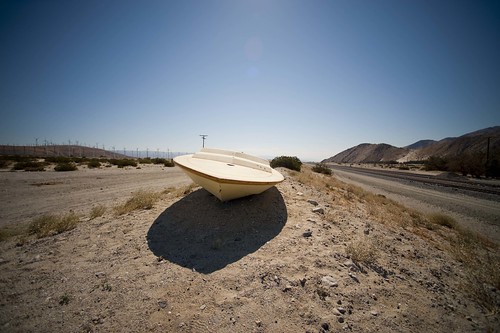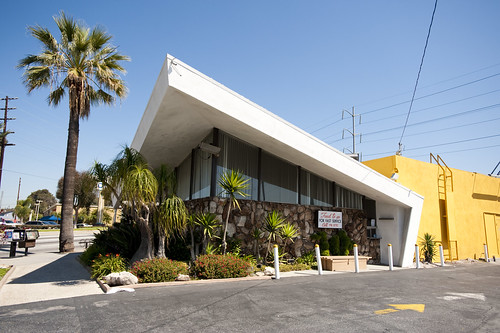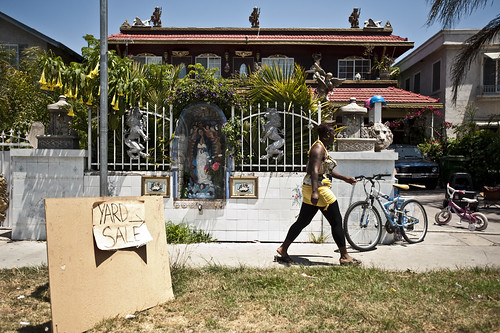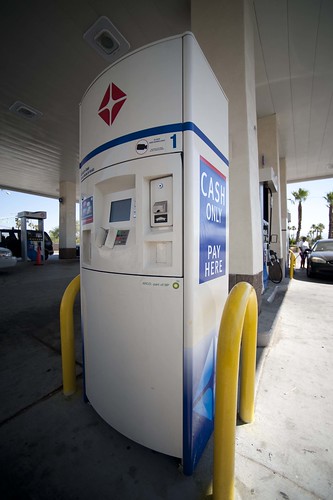Used to be that “cash only” was a mark of something “under the table” or “off the books” — a way to pay for a service without raising the attention of the authorities (like the tax accessor). With a “above board” “on the books” transaction, records are kept which can be looked through to determine if one or the other of the party has not made an accurate assessment of their business and, subsequently, their taxes owed. Using a credit card forces these sorts of automatic, databased transaction records. PayPal is probably the closest thing to a cash transaction system in the digital world — you can configure it to just pull money from your banking account and this way you do not incur a penalty (psychologically or financially) for holding a debt through a credit card.

Stuck in the dessert? Out of cash? Out of gas? Or, a remain from the lake that was once here, when the dinosaurs weren’t even thinking about their future in our gas tanks?
Here, gas in the desert of Palm Springs can be purchased for cash — you just slip your currency into the little vending machine here. No record is kept unless you use a debit card, which is almost like cash. I heard recently on NPR that service stations can actually lose money from selling gas, which seems crazy. But, at the end of this particular supply chain the guys and gals running the station is in the least beneficial position. The fees they pay for the opportunity to use credit card transaction networks (Mastercard, Visa, American Express) can be a genuine burden on their ability to make a profit, and many open up ancillary businesses based on the fact that they have your attention for a few minutes while you pump — an opportunity for a quick grocery shop or glazed eyeballs watching an advertisement on a nearby flat screen.
Why do I blog this? My eyeballs were glazed while I pumped gas on my way out of the desert and I tried to think of what curious things were going on whilst I waited. But, seriously..cash and its benefits can outweigh those of an electronic transactions. In this case, the ARCO service stations are known in the US for only accepting cash and, for that, you get your dinosaur remains for a couple or few cents cheaper on the gallon than if you use a credit card. The question here is — when and where does cash work better than digital bits to complete a transaction?
Continue reading Cash Only






